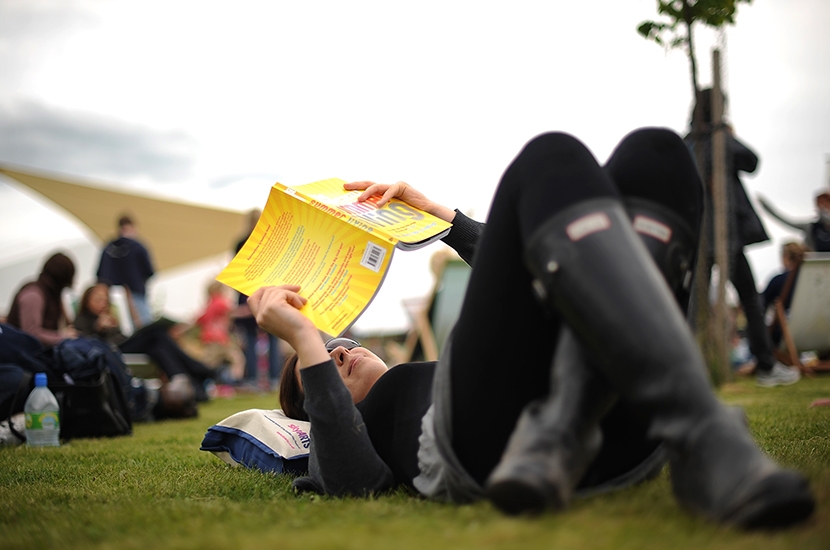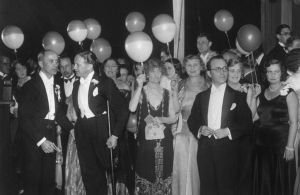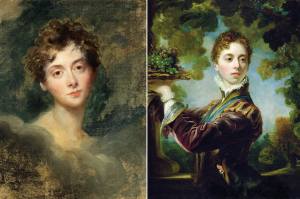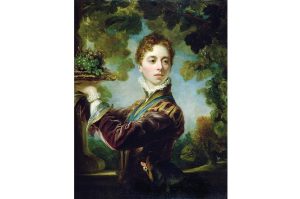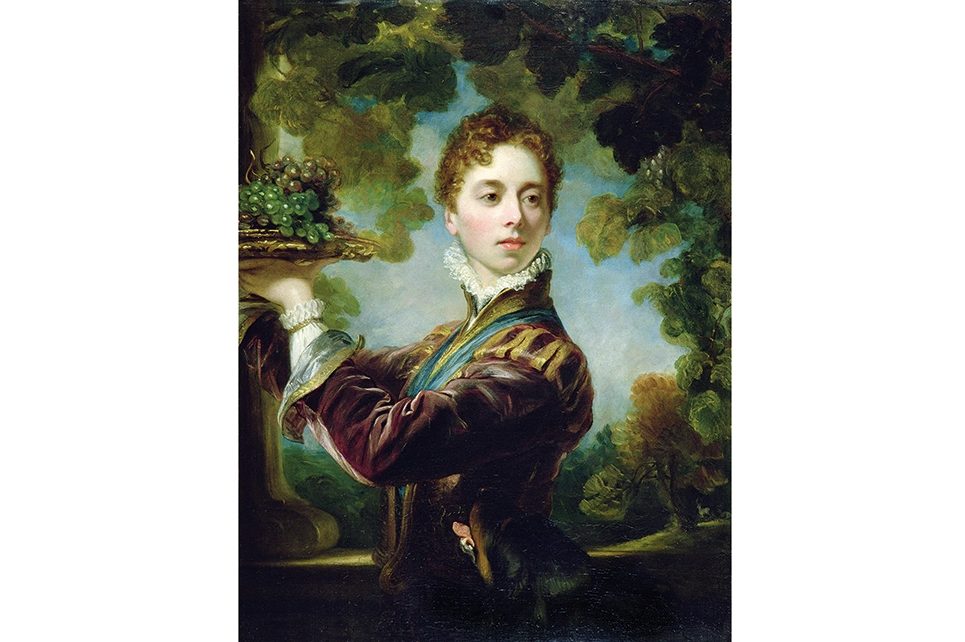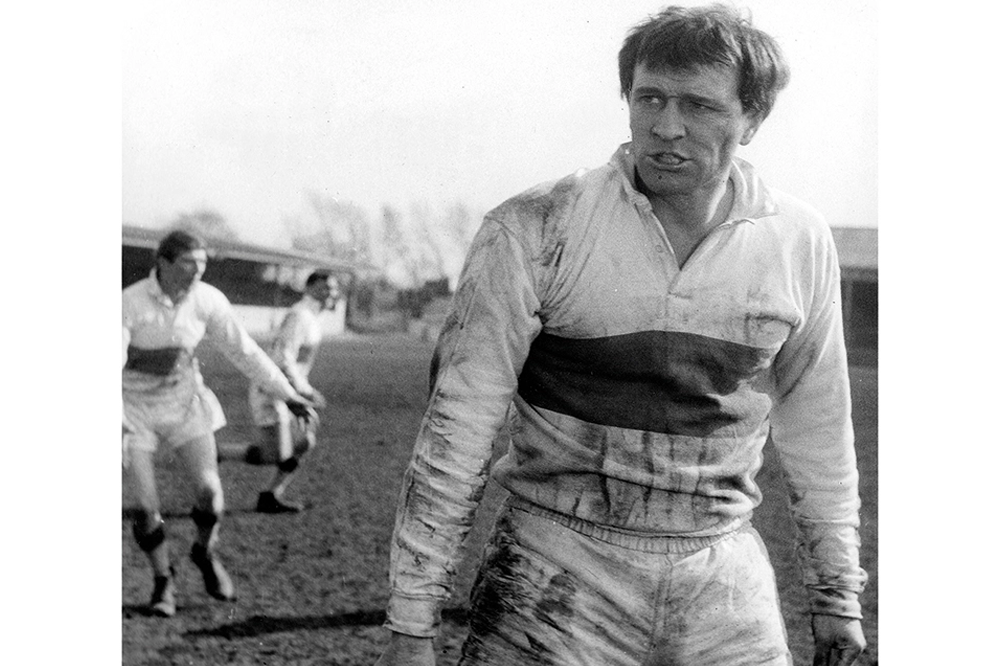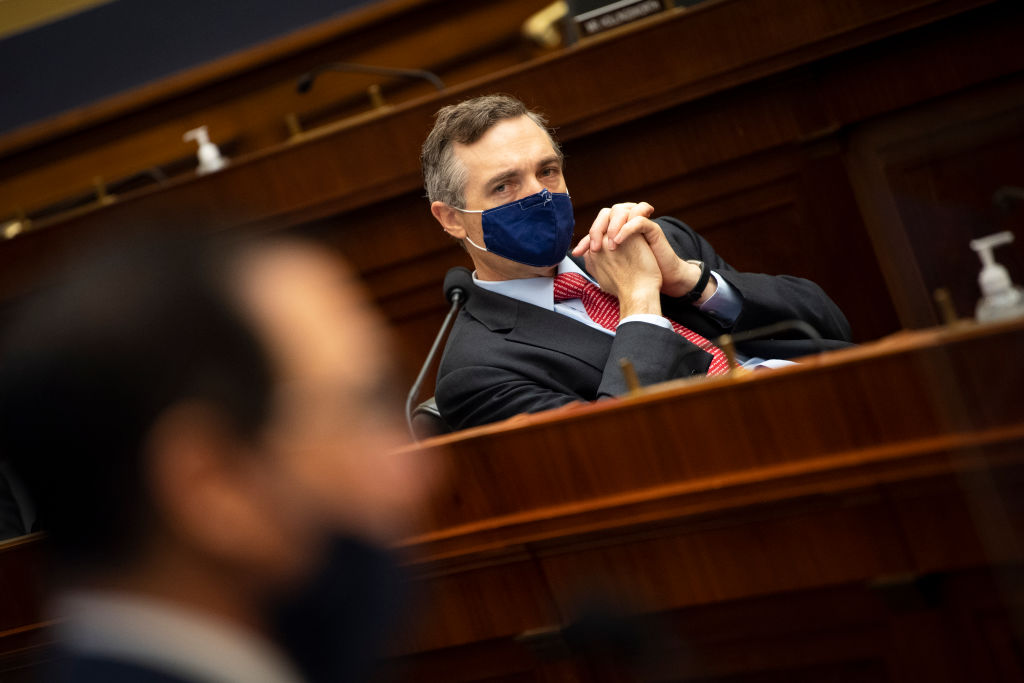I’ve been to two of my favorite book festivals recently, Chalke Valley History Festival and Charleston, and the experience has set me thinking about festivals in general. If I could listen to a great writer — any great writer — at a literary festival, I think I would choose Anthony Trollope. He would probably go on and on, just as his books go on and on, but be highly engaging in exactly the same way. Still in the 19th century, I don’t imagine Jane Austen would be much fun at a festival — but I am quite sure she would have the sense not to accept. Sir Walter Scott would lecture one at length about tartan history but his enthusiasm would be contagious. As it is, the rise of the literary festival is a phenomenon of my own day (my first published book appeared 67 years ago). The first one I went to was Hay-on-Wye, when it was quite a modest affair but delightful in its dedication to authors. The pleasure is not purely to do with sales, although that is an undeniable benefit. For me, it’s the contact. I remember looking at the audience at Hay and thinking: ‘These people are all here of their own free will. They are not prisoners marched in, or penned-up schoolchildren. I spend two or three or four years writing a book, not for myself, not for editors, not for critics but for readers — and here they are. At last.’
Of course, at the end of it the book signing may produce critics after all. ‘I was going to buy your book but listening to you it doesn’t sound much fun.’ What? Catholic emancipation not much fun? As delineated by me in The King and the Catholics, it was a riot. (At times literally so.) But I managed not to say that, and merely handed over a copy of The Gunpowder Plot instead.
Nothing like this happened at this year’s Chalke Valley History Festival, I’m glad to say, which was a delight as ever, starting with its situation wedged between beautiful Wiltshire hills and followed by its concentration on my lifelong passion, history. But I did have an interesting illustration of the relevance of contemporary events to history, a fascinating and ever-debatable subject. My new book centers on the 1836 trial of the prime minister Lord Melbourne for adultery with Caroline Norton, a married woman. It was her husband who brought the suit, asking for an enormous sum for the damage to his ‘property’, i.e. his wife. This was at the exact moment of the revelations breaking concerning Matt Hancock’s private life. From the back of the huge tent came a question from a distinguished gentleman: did I think Lord Melbourne was like Matt Hancock? The answer was: absolutely not. The question, however, was interesting to anyone trying to write history, because it demonstrated that people do attempt to use characters from the past to understand the figures of our own day. Writing about Marie Antoinette in the late 1990s, I sometimes thought about Princess Diana. Her tragic death occurred shortly before I was due to write the dreaded chapter concerning the French queen’s execution. The two royal ladies were very different but all the same there was something there which I found inspiring.
The event at Charleston, the picturesque farmhouse of the Bloomsbury set, illustrated a new feature of festivals in the summer of 2021: the prominence of the weather in all calculations. Since contemporary restrictions must be observed, there can be some dramatic scenes. The Charleston event was held outdoors in a large courtyard, with the speakers — Juliet Nicolson, as my interlocutor, and myself — on a stage with a wooden roof, but no sides or other cover. Having dreaded the rain, I discovered that a high wind can be far more perilous. My careful hairdo became instantly bouffant and remained so, in a way no hairdresser could have achieved. Then the essential blankets that kindly Juliet and the organizers pressed round me made me feel like a swaddled teddy bear instead of an elegant personage as planned. Still the wind and cold persisted. At one point I thought: ‘What on earth am I doing, talking about 19th-century women’s rights aloft in a gale?’ Then different feelings broke in. It began with the gallantry of the audience, quite as cold as, if not colder than, me. Juliet was equally staunch in continuing our dialogue. They were sticking it out and so should I. All of a sudden I realized that I was enjoying myself. Contact with people, talking about characters for whom I feel passionately: what is not to like? I remain a keen fan of literary festivals. And I decided on a new Latin motto for those who attend them: Per ventum invictus — by the wind unbeaten.
Antonia Fraser’s latest book is The Case of the Married Woman (Weidenfeld & Nicolson). This article was originally published in The Spectator’s UK magazine. Subscribe to the World edition here.



